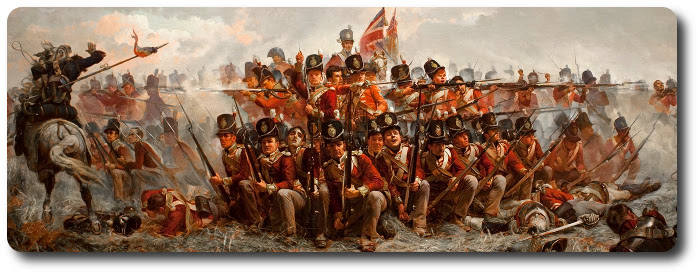Topic: Drill and Training

Qualities of Good British Infantry

Colonel Mark Kingsley Wardle, DSO, MC, Leics. Regt.
- Commissioned as a 2nd Lieut, Leics. Regt. 13 Oct 1909
- Served in France and Belgium from 25 Sep to 5 Nov 1914, 7 Mar to 12 May 1915, and 4 Nov 1915 to 27 Apr 1918.
- Distinguished Service Order, gazetted 26 July 1918: "For conspicuous gallantry and devotion to duty. By a daring reconnaissance during a withdrawal he located the exact extent of a gap between our troops, and ascertained the position, strength and movement of the enemy. His report was of the utmost value to the brigade commander and to the Higher Command. All through the operations he displayed great courage and enthusiasm."
- Wounded three times during the Great War
- Mentioned in Despatches, gazetted 20 Dec 1918
- Lieut. Col., Leics. Regt. on 8 May 1937
- Honourary Colonel, 10 Jun 1945.
A Defence of Close-Order Drill; A Reply to "Modern Infantry Discipline" by Major M.K. Wardle, D.S.O., M.C., The Leicestershire Regiment
Journal of the Royal United Service Institution, Vol. LXXIX, February to November, 1934
In the training of troops for warm it is essential in the first place to be clear about the sort of man it is desired to produce. In the British infantry the emphasis necessarily falls more heavily on certain points than in other arms and armies; but I do not believe that the qualities that are the groundwork of good British infantry in 1934 are any other than they were in 1334, or 1734, or 1834. They are, and sure always have been:—
(1) Physical fitness, that will make it possible for the man to answer the demands made upon him;
(2) Steadfastness, that will enable him to endure fatigue, hunger, cold, heat, hardships and deprivations of all kinds, and fear, to the end;
(3) Confidence in his leader's character and military efficiency, so that he will be immune from the insidious inroads of distrust and misinformed criticism;
(4) Pride in the efficiency of his platoon, company, battalion, and in the certainty that they will do their duty under all possible circumstances, and in the knowledge that they have done so in the past;
(5) Obedience, by which he embraces the intention of his leader as his own objective, to be attained by the exercise of every faculty, of courage, knowledge, or initiative, that he possesses in co-operation with the rest of his sub-unit;
(6) A sense of solidarity with his leaders and comrades, by which it becomes impossible for him to fail them, as it is inconceivable that they should fail him.
These are the military virtues of the British infantryman.

